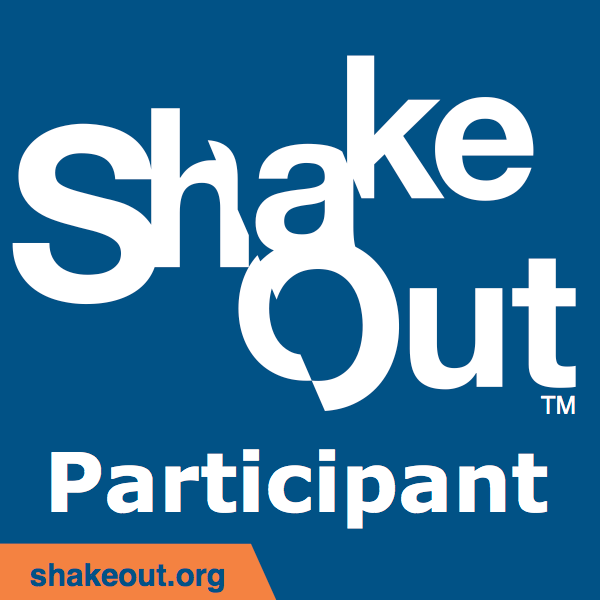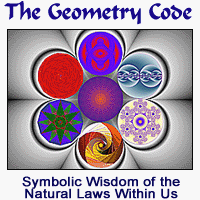ABNA Minefield after NaNo Haven?
I, along with several of my writerly-and-blogging friends, entered ABNA 2011 last week. The two-week entry period for the Amazon Breakthrough Novel Award, sponsored by Penguin Group USA and presented by Amazon.com, with Publisher’s Weekly as Review Sponsor, closed last weekend.The contest’s aim is to ‘publish and promote a manuscript by an unknown or unpublished author’, the winner being awarded a publishing contract with PenguinUSA, including a $15,000 advance.
That’s the carrot.
There are, however, several sticks that drive this donkey forward.
They’ve devised some unexpected hoops for us ‘unknown’ authors to leap through. And to brave those fiery hurdles, you need an iron-clad constitution, or at least the ability to meditate yourself out of those stress-filled moments of Angst before and after the contest’s several stages. It also helps if, in addition to your flair for putting pen to paper, you have a background in agenting, query letters, publicity and self-PR.
Which a lot of writers don’t.
Some of my writerly friends have been so psyched up –nerve-endings shattered, normal life relegated to broom closet– that we ended up sharing some inside information which may be of use to someone thinking of entering future writing and publishing contests. Though, the way I feel right now, I could be wrong.
If I write these lines BEFORE the judges read the ABNA entries and eliminate (most of) us from Round One (announcement due February 24th), then my comments can’t be seen as ‘sour grapes’, either by my writing friends or the judges.
As I see it, compared with the safe haven of NaNoWriMo, the annual creative writing competition which has run every year since 1999, ABNA is a minefield. It’s not difficult to see why. It’s not being run by writers or authors, but by the ‘Industry’.
O, skeptical veteran author who has ploughed her way through the mire set with explosive devices designed by agents and publishers to restrict the floodgates of queries and unsolicited MSS to a manageable flow, a readable number: you need read no farther. I commend you, but am not addressing you in this blog.My thoughts are instead directed to the unsuspecting budding ‘unknown’, author of a work which may have been written in an ecstatic rush during last November’s NaNo, or one which took years to write, hours of editing, polishing and resubmitting; even a work you’ve already self-published, because nobody else seemed interested. These words are for the novelist who at best isn’t sure s/he has written something good, at worst wants to burn the MS; but in her heart –and in hazy days and insomniac nights at the keyboard– believes it will be the next world bestseller.
I’m comparing and contrasting. But I know I’m also talking apples and pears.
NaNo was conceived 12 years ago by a non-profit group, the stellar Office of Letters and Light in San Francisco. Run by and for writers, NaNo loves its contestants, encourages them with profile pages which fellow participants can access, community posts that share tips and hints, and it stirs them up with frequent email encouragement. It even persuades volunteer group leaders –MLs (stands for Municipal Liaison, but means Motivation Leader)– to keep writers in geographical groups hard at it during the month of November. In essence, it succeeds in inspiring a large majority of its 200,000 participants (2010 figure, a phenomenal number) to write a novel of at least 50k words in thirty days. Those that make it –writing an average of 1667 words per day– are declared winners.You emerge from the NaNo experience feeling your fingers are permanently glued to the keyboard.
Even if your family and friends have deserted you and you have forgotten how to cook, clean, or sleep, when you’ve written a NaNo novel, you feel you’ve accomplished something. You suspect you might just conceivably –with a little tweaking, triple edits and a couple of final rewritten chapters– throw your baby into the shark-infested waters of the real world of publishing.
ABNA –now in its third year– comes along conveniently in January (humanity in northern hemisphere at a low ebb, dreams in hibernation). It offers a brief window of opportunity for entry into its two fiction categories, young adult and adult, and you, the revved up, rewarded and real-world-rookie writer go for it. After all, you’ve got a new novel in your pocket (or hard drive), so why not?
If that describes your feeling of euphoria, beware: there are pitfalls.
There are several holes in the 2011 competition –not least the fact that 5000 adult fiction authors and nearly-5000 YA fiction contestants have now entered ABNA and been left hanging. No profile page like the friendly NaNo interface, no sharing. Not even a taste of comparing one’s entry with the other 4999 contestants in the same genre, no personal touch, no encouraging emails. All right. It’s a competition to promote professionalism in writers and project two of them to stardom. The contest homepage suggests you join numerous discussion boards and help groups if you need to know more. And the entry format is simple: an upload page for submitting your MS, its description (which goes on Amazon.com if you win), a 5000-word excerpt along with your author Bio, contact details and the pitch. That’s it.
Ah, there’s the rub. The pitch.
A pitch (as in ‘sales pitch’) is a series of short paragraphs which grab the reader/reviewer/listener and give a punchy version of your plot outline: not necessarily in any chronological order, so long as it ‘grabs’.
Round One, which closes February 24th, eliminating 4000 of those aspiring entrants in each category, is being judged solely on the pitch. A group of editors chosen by Amazon will select 1000 pitches they judge most likely to reveal an exciting new concept in the novel beneath. Not the excerpt, not the description, certainly not the author’s past achievements. A 300-word pitch.
And, as we all know, novelists are traditionally lousy at writing their own PR.
Most of the feedback I’ve heard is from (accomplished and innovative) writers who are placing little voodoo dolls of themselves on the desk next to their laptops and sticking pins in them.
‘My pitch sucks,’ ‘I can’t write a pitch for love or money’, ‘I’m going to fail Round One because I don’t know how to pitch my story’ are a few of the comments I’ve read. Sixteen pages of commentary and shared suggestions exist on the NaNo web community helping 2010 NaNo novelists to overcome lack of faith in their 2011 ABNA pitch. These are not first-time writers, not amateurs tossing a ball in the air to see where it lands. These are dedicated, passionate authors throwing themselves and their lovingly-crafted characters (MC, protagonist and supporting cast) to the wolves, oops, sharks.
![]() Because, unmasked, that is what ABNA is. The publishing industry’s undertaker: the smiling, cravatted, pin-stripe suited facilitator, helping put the last nail in the coffin innocently provided by 8000 novelists. Some of last year entrants were so deflated by the reviews they received from ‘industry expert reviewers’ that they will not enter again this year. Some will never try another contest.
Because, unmasked, that is what ABNA is. The publishing industry’s undertaker: the smiling, cravatted, pin-stripe suited facilitator, helping put the last nail in the coffin innocently provided by 8000 novelists. Some of last year entrants were so deflated by the reviews they received from ‘industry expert reviewers’ that they will not enter again this year. Some will never try another contest.
According to personal testimony, a few of this year’s potential entrants were so daunted by the prospect of writing a snappy bullet for their pitch, only to be turned down before a single actual word of their novel was read, that they decided against entering ABNA altogether.
They say only the strong survive.
Round One, above, eliminates 90 percent.
Round Two offers a little ray of hope to those 1000 lucky survivors. That’s when Amazon/Penguin editors and reviewers will get to read the fortunate contestants’ excerpts. Not the MS yet: just the first chapters. ABNA chose this to mean not a random excerpt which to another writer might show individual flair, style and voice, but the first 5000 words, i.e. the opening chapters, of your novel. This, they say, gives an insight into the novelist’s grasp of how to hold a reader from the outset. We’re getting closer to the agent-query process. Round Two will be judged on a scale of one (poor) to five (excellent) on ‘overall strength, prose, style, plot, hook and originality’ of the excerpt. Then on March 13, 2011, 250 novels will be chosen in each category to progress to the Quarter Finals.
Round Three: Publishers Weekly reviewers select 50 entries to move forward to the Semi-Finals. Announced April 25, 2011.
Semi-Finals April 26 – May 23, 2011
At this stage top excerpts in each category will be posted on the ABNA homepage where the public may view and vote for their favorite entry, but also where each contestant will be reviewed by a celebrity panel, ‘each consisting of at least one well-known author, one agent, and one editor’. That rather sums it up. Now the truth will out.
Finals May 24 – June 1, 2011
Three finalists in each category will have their complete MSS read and chosen by this select panel and excerpts of these six novelists’ work will be displayed on the ABNA homepage. The public get to vote for their own chosen winner –one finalist in each category. Panel reviews of the finalists’ work will also be posted.
Amazon celebrates the winners in both categories in an awards ceremony at a venue yet to be named after an announcement on June 13, 2011.
One blogger estimated the chances of being chosen as the publishing industry’s next top author as 0.02%.
It’s not as bad as it sounds. As the final rounds progress, others will be scanning, not just the ABNA website but the weblogs of entrants who made it through some of the hoops. These are themselves agents, editors, publishers representing other institutions, aware that ABNA may be missing out on some unique talents whose gems are slipping through the cracks. That raises the odds to at least 0.06%.
So all is not lost.
I say this vehemently to absolve any and all of my scribe–friends who may or may not mention ABNA in their blogs this month. Nobody wants to bite the hand that (potentially) feeds. I take full responsibility for this blog opinion. Their blogs, here, here and here are talented, informative and mostly talk of other things. But IMHO the odds need to be counted, the truth told.
Agents whose blogs share an industry perspective on the current economical difficulties facing publishers are quick to assure us that, if our work is superb, our concept original and our writing has an individual ‘voice’, it will be heard by the right ear and our work will reach readers.
Readers: ah, them. The reader is, first and last, the audience we really write for. If we forget that amid the media hype, the punchy pitch, we forget who is really important. Without the reader, dear Reader, our writing is just tapping electrons into the ether.
NaNoWriMo helped me create something from the bosom of my Muse which surprises and delights me. Even if it needs another three months to develop it into something readable by another, I love it for the stretching effect it had on my psyche. I may be wrong, but the ABNA setup seems geared to do the opposite: to shrink and contract that flow of inspiration that lies within.
I am certain I shall be a NaNo participant next November. I am not so sure I feel like braving another ABNA in 2012.














